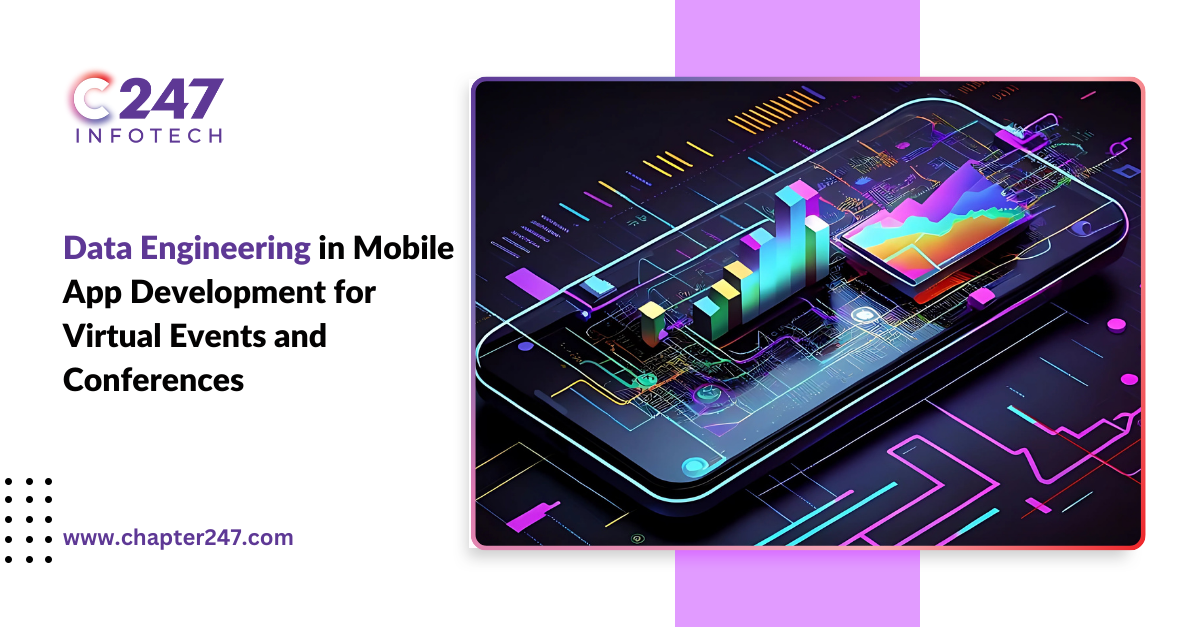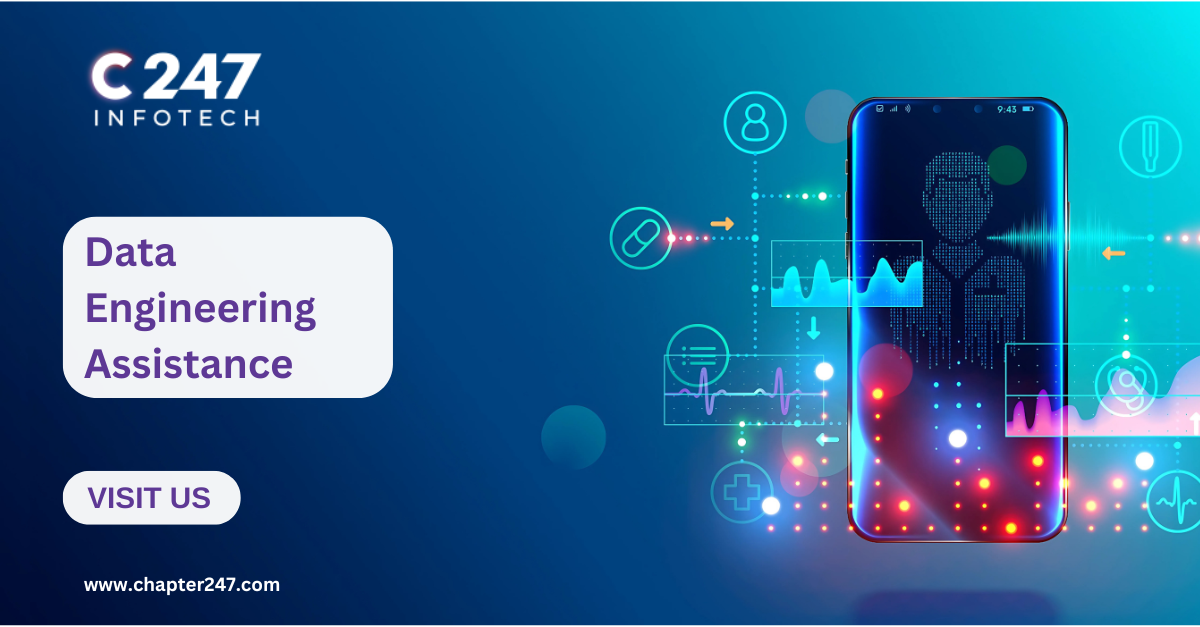Over the past few years, most interactions, meetings, and conferences have shifted to being virtual. The COVID pandemic has also fast-tracked this change, and companies leverage mobile app development to deliver immersive virtual event experiences. Essential to developers for leveraging data correctly for better event management and attendee interaction is data engineering.
Data engineering in the blockchain
Data engineering refers to developing appropriate systems required for data gathering and analysis. In mobile app development, for instance, a virtual event ensures that data can pass through, so there is real-time correspondence and uniqueness.
Data engineering for Virtual Events and why it matters
It is the process of developing decision-support instruments to gather, manage, and process information. In the context of mobile app development for virtual events, data engineering helps in several ways:
- User Insights: It also helps application developers identify which application aspects are most used by an attendee. It makes it possible to give the customer tailored services based on the latter’s preferences.
- Performance Optimization: Data engineers also actively manage the applications to guarantee that they operate seamlessly to optimise a performance metric, which may indicate a bottleneck.
- Scalability: Since virtual sessions can appeal to many people, metrics increase the ability to meet those loads without slowing down.
A current report indicates that the virtual events market is poised to expand from $78 billion in 2020 to $404 billion by 2027, pointing to the growing importance of technology for event convening.
Key Components
Data management consists of several essential steps that help turn incoming information into usable insights and provide security and availability.
Data Collection
Gathering information is vital in efficient data engineering. It encompasses information acquisition from users’ engagement, sign-up process, and customer satisfaction anecdotes. It is essential here to note that this stage serves as the baseline for all other processes in business, and it involves understanding the user’s preferences, needs and behavior.
Data Processing
Data collection does not end at data collection; data has to be arranged and understood. In the processing stage, the data collected is reviewed and recategorised to enhance the understanding of the raw data collected. It is of paramount importance when making such decisions.
Data Storage
Data storage helps to make the organised data stored to be easily accessible at any one time in future. Due to the development of sophisticated storage technologies like cloud databases, providing easy scalability and retrievability is convenient, making this step necessary.
Data Integration
Interlinking data collected from different sites is necessary to ensure a smooth data transition for the users. Convergence means that different datasets are compiled into a single data source to present consolidated information for improved organisational decision-making.
Data Security
The key point, which is of paramount importance, is to secure user information from unauthorised access. Having strong encryption, restrictive access and adherence to privacy laws, the data passed and received remain secure and credible.
Enhancing User Experience
When data is well managed, the mobile applications must provide facilities such as personal agendas, real-time notification, and interactive networking. For example, it gives attendees session suggestions, making the overall experience more enjoyable.
Scalability and Performance
In the measure of the size of virtual events, the amount of data also rises. Proactive data engineering provides a means through which a given app can be engineered to handle big data and serve everyone without compromising on the experience of the end-user.
Mobile event apps have emerged to be popular because of the use of virtual events. In the latest data, it was revealed that 90% of the event marketers said that technology, too, can enhance the prospects of an event. Moreover, according to LLCBUDDY, 78% of businesses benefited from mobile event app contributions to their ROI.
Challenges and Considerations
Despite the advantages that data engineering provides developers, they have to work with and solve issues like data privacy, integration, and real-time data processing. Another essential preparation is ensuring that data protection regulations are followed in the letter.
Mobile apps for virtual events will remain reliant on data engineering as technology advances into the future. The opportunities provided by AI and machine learning can also be applied to extend individual catering to individual event experiences.
Conclusion
Data engineering is crucial in creating virtual events and conference apps since they must be constructed from scratch. It facilitates data handling, optimises it, improves the UX and helps virtual events applications to grow, contributing to successful outcomes.








